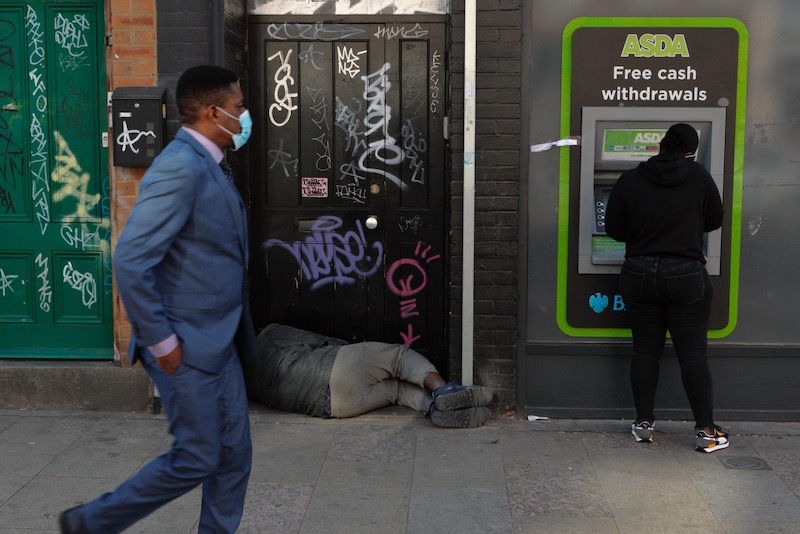Nothing could be more counter-intuitive than Jesus’ exhortation: “Love your enemies, do good to those who hate you, bless those who curse you, pray for those who treat you badly.”
As startling now as when first uttered, his words fly in the face of our deepest instincts for self-preservation and solicitude for the safety of those closest to us. At the time, nothing could have been more countercultural; but, as we confront the menacing prospect of armed conflict between divided nations in Central Europe, it is all-too evident that little has changed to make these words any more palatable or, indeed, plausible.
On the face of it, they sound almost oxymoronic, a clean contradiction, a counsel of self-destruction, an incitement to national or even societal suicide. And yet, as explicated in the rest of Luke’s Sermon on the Plain, they are the most revolutionary and world-changing of all Jesus’ words in the gospels. They arise from the very core of the Gospel itself: namely, that God loves every last part of his creation, without exception, “the righteous and the unrighteous”, irrespective of what we do or don’t do.
That is the key to the world’s redemption. But to love in the same way is also the key to the salvation of each one of us, because only by willing the good of all, without exception, loving them, in other words, as he does, can we be said genuinely to love him. Jesus, of course, practised what he preached, quite literally, and the cost in human terms was nothing less than everything: the cross was the direct consequence of his being true to the fullness of our human nature, as created by God.
When the divine love that had created the world became humanly present in the violent, unjust world that we have confected from what he created, and to which we all contribute in myriad small and sometimes large ways, it led to the horrific humiliation and pain of the Cross, because, in Herbert McCabe’s memorable words: “If in this life you don’t love, you’re dead, and if you do, you’ll be crucified.”
But this collective, self-harming, insane reaction to Goodness itself in our midst did not alter, let alone diminish, God’s love for us, just as it did not change Jesus’ love for those, his persecutors, who did him such grievous harm. “Father, forgive them.” Those words liberated us from the ever-deepening, downward spiral in train ever since the Garden of Eden, the inexorable, infernal circle whereby the victimised become victimisers, the hated become haters and the persecuted become persecutors.
God Himself made himself vulnerable to and became the victim of our instinct to retaliate, which from within the world of violence and injustice appears rational and necessary for selfpreservation. But being love itself, he, uniquely, did not hate or harm in return. We were liberated, in other words, by a love that isn’t dissolved or nullified by rejection or persecution, because it is the source of existence itself, the original goodness that outweighs original sin, in all its manifestations.
We’re to love as God loves, however, to love as we ourselves are loved, not out of obedience, not even in slavish imitation; but because, contrary to our deeply distorted instinct to attack and harm those who would harm us, to love as he loves is to acknowledge the very origin and raison d’être of our existence. It is to be true to ourselves, created in the image and likeness of God And it follows that every use of the word “love” that leaves out of account “even your enemies”, is flawed, incomplete, skewed, no matter how intensely felt or loudly professed.
Only love as spoken of by Jesus in this gospel makes any real difference; only willing the good of all, rather than only those who love us, changes the world, because it changes us at our core and liberates us to live our human lives in this world to the full.
It is, of course, a counsel of madness to many if not most, an outright misuse of the word “love”. That will have been the reaction of some who heard the arresting interview on Friday morning’s BBC Today programme, when a medical doctor, who had been viciously stabbed and almost killed at his front door by a complete stranger, said how much he felt for his young assailant, now languishing in prison, his life thrown off-course for ever. Not a scintilla of hatred or anger; just pure, unalloyed compassion, utterly unaffected or altered by the harm done to him by this young man. “Be compassionate, as your Father is compassionate.”



 Loading ...
Loading ...
What do you think?
You can post as a subscriber user ...
User comments (0)